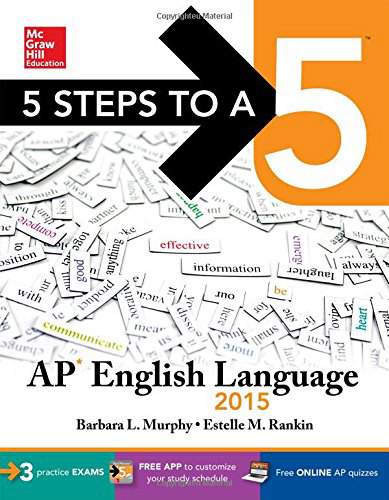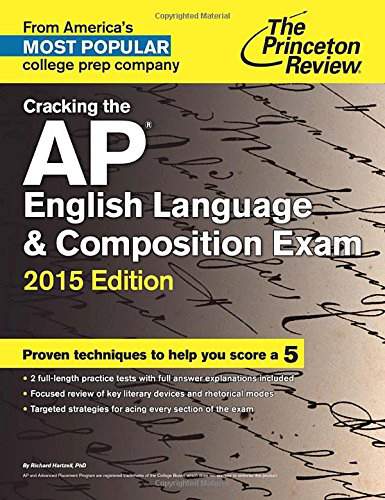

Rebekah Hendershot
Argumentative Walkthrough
Slide Duration:Table of Contents
Section 1: Introduction
Introduction
13m 8s
- Intro0:00
- Lesson Overview0:11
- Why Does This Test Exist?0:29
- What is Rhetoric?0:47
- Definition0:48
- If You Can't Express Your Thoughts Clearly and Logically, You're Not Thinking Clearly0:59
- Why Does Rhetoric Matter?3:21
- Writing Papers3:33
- Participating in Debates3:49
- Discussing Ideas in Class4:01
- Arguing with Your Friends4:13
- So Why Take a Test on Rhetoric4:28
- Show You Know Your Way Around an Argument4:36
- What's on The Test?5:27
- Section 1: Multiple Choice5:33
- Section 2: Free Response6:01
- How is the Test Scored?7:55
- How This Course Will Work10:14
- Introduction10:24
- Multiple Choice10:29
- Essay Basics10:50
- Rhetoric Crash Course11:20
- The Rhetorical Analysis Essay12:11
- The Argumentative Essay12:21
- The Synthesis Essay12:30
- Final Thoughts12:41
Section 2: Multiple-Choice section
Multiple Choice Overview
7m 34s
- Intro0:00
- Lesson Overview0:09
- Question Structure0:41
- Multiple Choice Section0:43
- Answer Questions About These1:33
- Selection Sources2:12
- Works Written in 19th and 20th Centuries2:15
- Selections Were Written in English or Translated2:51
- It's All About Variety!3:16
- Basic Test-Taking Strategies3:52
- Read the Passage First3:56
- Read for the Big Picture4:41
- Do Everything Twice5:01
- Use the Process of Elimination6:09
How to Read & Interpret a Passage
10m 18s
- Intro0:00
- Lesson Overview0:09
- Read for the Big Picture0:30
- Concentrate on the Following0:42
- Big-Picture Questions Often Come at the Beginning and End Set of Questions1:09
- What to Look For1:25
- The Author's Goal1:29
- The Author's Tone2:22
- The Author's Point of View4:13
- Hunting for Details5:11
- Read Questions and Hunt for Details5:21
- Detail Questions that Reference Specific Lines5:37
- Detail Questions Depend on Context6:02
- Detail Questions Often Depend on Vocabulary6:27
- Clues to the Big Picture7:11
- Final Tips7:54
- When Answering Detail Questions, Read for Content and Context8:05
- Pace Yourself8:17
- Skip & Go Back to Questions8:41
Multiple Choice Practice
13m 33s
- Intro0:00
- Lesson Overview0:09
- Source Passage0:25
- Read the Passage0:59
- The Questions1:23
- Big-Picture Questions1:50
- Question 31:51
- Question 83:10
- Question 104:18
- Detail Questions5:32
- Question 15:35
- Question 26:52
- Question 47:55
- Question 58:41
- Question 610:06
- Question 710:59
- Question 911:47
- Final Tips12:45
Section 3: Essay Basics
AP Essay Section
9m 2s
- Intro0:00
- Lesson Overview0:09
- Format of the Essay Section0:33
- 120 Minutes to Answer Three Essay Questions0:36
- 15-Minute Reading Period0:49
- 55 Percent of Your Grade1:14
- Bring Pens1:34
- Content of the Essay Section1:49
- Rhetorical Analysis/ Expository1:53
- Argumentative Essay2:07
- Synthesis Essay2:32
- Who's Reading These Essays?2:57
- High-School, College and University Instructors3:06
- They're Unfamiliar with Your Style of Writing3:27
- Cannot Tailor Your Essay to Their Personal Preferences3:45
- Most Essays are Read at Least Twice for Consistency4:49
- Readers Give About 65% of the Essays They Read a Middling Score4:59
- Relieve the Monotony and Make Your Essay Stand Out!5:20
- Why Do These Essays Matter?5:29
- 55% of Your Grade5:34
- Display Your Unique talents and Think Outside the Box5:58
- Essays Intimidate Many Students6:12
- How Are These Essays Different?6:54
- No Chance to Revise7:00
- Can't Study Subject Matter in Advance7:39
- Form and Writing Style Matter as Much as Content7:59
- Writing Audience8:21
AP Essay Section Scoring
10m 58s
- Intro0:00
- Lesson Overview0:09
- Holistic Scoring0:43
- Essays Will Not Be Graded According to a Checklist0:51
- Score Reflects the Overall Quality of Your Essay0:58
- ETS Table Leaders Choose Real Essays from Each Year's Crop to Represent Typical Essays of Each Level1:18
- A Reader Will End Up Re-Reading and Re-Correcting Certain Essays at Random2:06
- What the Reader Wants2:38
- Easy to Score Essay2:44
- Interesting Essay3:19
- Scoring Guide4:05
- Scores 8-94:10
- Scores 6-75:15
- Scores 55:58
- Scores 3-47:06
- Scores 1-27:54
- Scores 0 and -8:25
- The Two Secrets of Essay Scores8:49
- Clarity is Everything8:59
- It's All About Level 59:37
Strategies to Raise Your Essay Score
9m 28s
- Intro0:00
- Lesson Overview0:09
- Formatting Tips0:36
- Neatness Counts0:39
- Indent Your Paragraphs2:23
- Writing Tips3:39
- Write Perfectly3:42
- Write with Flair4:55
- Content Tips5:59
- Answer the Question6:04
- Take a Few Risks6:31
- Test-Taking Strategies7:06
- Budget Your Time7:11
- Order Your Essays8:18
Section 4: Rhetoric
Rhetoric Crash Course: Claims
14m 18s
- Intro0:00
- Lesson Overview0:11
- The Three Elements of Argument0:34
- Claim1:02
- Support1:09
- Warrant1:14
- An Example1:27
- What is a Claim?3:12
- Define Claim/ Proposition3:15
- Conclusion of Argument3:25
- Thesis Statement3:41
- Types of Claims3:51
- Claims of Fact3:55
- Claims of Value4:18
- Claims of Policy4:48
- Claims of Fact5:19
- Defining Characteristic5:21
- To Evaluate a Claim of Fact6:39
- Claims of Value8:33
- Defining Characteristic8:35
- To Evaluate a Claim of Value9:17
- Claims of Policy11:19
- Defining Characteristic11:21
- To Evaluate a Claim of Policy11:50
Rhetoric Crash Course: Support
14m 26s
- Intro0:00
- Lesson Overview0:10
- The Three Elements of Argument0:34
- Claim0:56
- Support1:03
- Warrant1:09
- An Example1:17
- What is Support?2:01
- Information Provided to Back Up a Claim2:03
- Usually Shows Up in the Body Paragraphs2:10
- Types of Support2:21
- Evidence2:23
- Appeals to Needs and Values2:53
- Factual Evidence3:26
- Opinions4:52
- Four Forms5:03
- Evaluation of Evidence5:43
- Ask These Questions to Evaluate Factual Evidence5:46
- Ask These Questions to Evaluate Statistics7:21
- Ask These Questions to Evaluate Opinions8:23
- Appeals to Needs9:35
- Physiological Needs10:01
- Safety Needs10:13
- Love Needs10:26
- Esteem Needs10:45
- Self-Actualization Needs11:04
- Appeals to Values11:27
- Needs Give Rise to Values11:30
- Different Groups Will Interpret Values Differently11:54
- Knowing Your Audience's Values Will Help12:41
- Evaluation of Appeals to Needs and Values12:52
- Have the Values Been Clearly Defined?12:57
- Are They Prominent in the Audience's Hierarchy?13:14
- Is It Clearly Related to the Needs and Values Being Addressed?13:51
Rhetoric Crash Course: Warrants
10m 29s
- Intro0:00
- Lesson Overview0:11
- The Three Elements of Argument0:38
- Claim0:52
- Support1:00
- Warrant1:09
- An Example1:17
- What is a Warrant?1:53
- Definition2:01
- May Not Be Stated At All in Your Essay2:28
- Types of Warrants3:14
- Authoritative Warrants3:19
- Substantive Warrants4:03
- Motivational Warrants5:10
- Evaluation of Warrants5:32
- Ask These Questions to Evaluate Authoritative Warrants5:44
- Ask These Questions to Evaluate Substantive Warrants6:43
- Ask These Questions to Evaluate Motivational Warrants9:07
Rhetoric Crash Course: Logical Fallacies
19m 17s
- Intro0:00
- Lesson Overview0:10
- What is a Fallacy?0:24
- Inductive Fallacies0:44
- Deductive Fallacies0:57
- Hasty Generalization1:42
- Example2:02
- Faulty Use of Authority2:32
- Example3:16
- Post Hoc3:45
- Example4:11
- False Analogy5:08
- Example5:32
- Ad Hominem6:18
- Example6:56
- False Dilemma / Black-White7:25
- Example7:39
- Slippery Slope8:25
- Example9:01
- Begging the Question9:38
- Example9:57
- Straw Man10:40
- Example11:09
- Two Wrongs Make a Right12:32
- Example12:48
- Non Sequitur13:29
- Example13:58
- Ad Populum14:45
- Example15:19
- Appeal to Tradition15:52
- Example16:19
- Faulty Emotional Appeals17:02
- Example18:05
Basic Rhetorical Modes
11m 18s
- Intro0:00
- Lesson Overview0:09
- What is a Rhetorical Mode?0:27
- Ready-Made Approaches to Writing Essays0:33
- Some Multiple-Choice Questions Will Use Terminology Associated with Rhetorical Modes0:49
- Example / Illustration1:03
- Use Examples That Your Reader Will Understand1:35
- Draw Examples From Real Life1:59
- Introduce Your Examples Using Transitions2:49
- Examples to Illustrate Your Point3:03
- Discard Examples That May Disprove Your Point3:42
- Classification4:20
- Writer Organizes People, Places, Things, or Ideas into Categories4:25
- Classification Works Best When You Are Asked to Analyze or Explain Something4:49
- Sort Your Info Into Meaningful Groups5:14
- Make Sure the Categories Do Not Overlap5:54
- Comparison and Contrast6:49
- Organize Your Essay Around the Qualities Being Discussed7:31
- Do Your Best to Combine Elements into a Limited Number of Groups8:24
- Analogy8:57
- Russell's Teapot Example9:19
- Expository Writing (Explanation)10:05
Complex Rhetorical Modes
14m 22s
- Intro0:00
- Lesson Overview0:10
- What is a Rhetorical Mode?0:31
- Process Analysis0:56
- Describe in Chronological Order1:21
- Use Appropriate Terminology1:42
- Cause and Effect2:18
- This Mode Is All About Underlying Causes2:32
- Don’t Confuse a Connection in Time or Space with True Cause and Effect3:05
- Definition3:48
- Keep Your Reason for Defining Something in Mind as You're Writing5:06
- Define Key Terms According to What You Know of Your Audience5:19
- Description6:10
- Use All Five Senses7:21
- Place the Most Striking Examples at the Beginnings and Ends of Your Paragraphs7:41
- Focus on Distinctive Mannerisms When Describing People8:45
- Narration9:47
- Structure Events in Chronological Order10:35
- Provide a Realistic Setting10:54
- Induction and Deduction12:00
- Induction12:08
- Deduction12:32
- When Using Inductive Reasoning, Proceed from the Specific to the General13:01
- When Using Deductive Reasoning, Proceed from the General to the Specific13:34
Section 5: Rhetorical Analysis Essay
The Rhetorical Analysis Essay
6m 17s
- Intro0:00
- Lesson Overview0:10
- What is a Rhetorical Analysis Essay?0:38
- Definition0:41
- Prompt0:54
- What a Rhetorical Analysis Essay Isn't1:09
- Not a Chance for You to Show Off Your Own Rhetorical Skills1:14
- Not an Opportunity to Refute the Text1:28
- Read the Prompt Carefully (Twice)2:07
- First Time2:11
- Second Time2:33
- Looks for the Elements of Argument3:05
- Claim, Warrant, Support3:11
- Claim is Important3:29
- Look for Point of View4:03
- Look for Rhetorical Strategies4:50
The Rhetorical Analysis Prompt
7m 31s
- Intro0:00
- Lesson Overview0:10
- What is a Rhetorical Analysis Essay0:27
- Definition0:31
- Prompt0:44
- Read the Prompt - Twice0:56
- First Time1:00
- Second Time1:14
- Reading the Text1:31
- Skimming is Fine1:44
- What to Look For2:01
- Elements of Argument2:03
- Unusual Language2:31
- Why Were the Examples Chosen2:44
- Keep In Mind the Purpose3:05
- Look for the Rhetorical Modes3:20
- How to Answer4:07
- Outline4:11
- Answer the Question You're Being Asked!4:34
- Begin with a Brief Hook5:03
- Provide a 'Road Map'5:29
- Line Up Your Support with Your Strongest Material6:10
Rhetorical Analysis Practice
12m 8s
- Intro0:00
- Lesson Overview0:08
- Where to Find the Prompt0:52
- Analyzing the Prompt1:19
- It Offers Background Info1:22
- It Gives the Context of the Speech1:52
- It has a Focus2:15
- Reading the Text2:36
- How She Begins2:46
- Uses a Series of Examples2:57
- Appeals to Sentiment3:15
- Use of Description and Narration3:41
- Analogy3:50
- As the Piece Moves On…3:56
- Proposes Her Solution4:20
- Appeal to Patriotism4:46
- Scoring Guidelines5:04
- Score of 95:10
- Score of 85:30
- Score of 75:54
- Score of 66:04
- The Sample Essays6:14
- Sample 2A, Score of 86:23
- Rule of Three6:35
- Sample is Notable for its Language6:56
- Sample 2B, Score of 67:51
- Imprecision8:30
- Sample 2C, Score of 19:12
- Tips for the Rhetorical Analysis Essay10:44
- Look for the Elements of Argument10:52
- Language!11:04
- Outline11:23
- Don't Over-Quote11:45
Section 6: Argumentative Essay
The Argumentative Essay
10m 22s
- Intro0:00
- Lesson Overview0:09
- What is an Argumentative Essay?0:33
- Definition0:35
- Refute, Support or Qualify0:52
- The Good News1:20
- Express Yourself!1:28
- There's No Correct Answer1:58
- The Essay is Easily Identified2:16
- Read the Prompt Carefully (Twice)2:29
- First Time: Underline the Directions Given2:34
- Second Time: Look for Anything You Might Have Missed3:20
- Find the Main Idea3:43
- Three Elements3:48
- Claim3:53
- Take a Clear Stand4:55
- Good to Refute the Claim You Can Reasonably Do So5:33
- Construct Your Argument6:41
- What Warrant Connects Your Support to Your Claim?6:58
- Have You Organized Your Essay to best Reflect the Strength of Your Argument?7:42
- Remember the Little Things!8:01
- Write in the Present Tense8:03
- Everything the Author Says or Does is Always Described in the Present Tense8:27
- Use the Past Tense for Historical Facts9:02
- Watch Your Spelling, Grammar, and Punctuation9:11
- Make Sure Your First Paragraph is Neat9:24
- Take a Few Risks with Your Language9:53
The Argumentative Prompt
8m 19s
- Intro0:00
- Lesson Overview0:10
- What is an Argumentative Essay?0:35
- Definition0:39
- Refute, Support or Qualify0:51
- Read the Prompt - Twice1:08
- First Time: Underline the Directions Given1:15
- Second Time: Look for Anything You Might Have Missed2:05
- Reading the Text2:17
- What to Look For2:45
- Elements of Argument2:47
- Hooks3:05
- Obvious Flaws3:28
- Choosing Your Side3:42
- Which Side Do You Feel Most Strongly About?4:01
- Do You Have Two or Three Strong Examples?4:55
- How to Answer5:54
- Answer the Question You're Being Asked6:09
- Use Multiple Types of Examples6:28
- Begin with a Brief Hook6:47
- Provide a Road Map7:00
- Write in Present Tense and Use the First-Person Singular7:57
Argumentative Practice
13m 1s
- Intro0:00
- Lesson Overview0:09
- Where to Find the Prompt0:48
- Question #31:04
- Analyzing the Prompt1:17
- Background Information1:24
- Focus1:51
- Demand2:02
- Reading the Text2:18
- He Explains Why it Should Not Exist2:38
- He Claims That Because American Society is Founded on the Principles of the Rights of Man2:52
- Specific Examples3:12
- Define Concord3:39
- What's the Big Idea?4:25
- Paine's Main Idea4:31
- Scoring Guidelines4:54
- Score of 95:02
- Score of 8, 7 or 65:31
- The Sample Essays6:02
- Sample 3a; Score of 96:06
- Sophistication of Style6:28
- Use of Analogies7:36
- Command of Language8:04
- Sample 3b; Score of 58:27
- Sample 3c; Score of 110:23
- Tips for the Argumentative Essay11:57
- Language!12:02
- Underlying Structure12:15
- Blend Your Evidence With Your Opinion12:27
Section 7: Synthesis Essay
The Synthesis Essay
9m 19s
- Intro0:00
- Lesson Overview0:08
- What is a Synthesis Essay?0:35
- Involves Multiple Sources0:53
- Why Do I Have to Write One?1:08
- Need to Read and Evaluate Multiple Sources in College1:44
- Prove You Know How to Write a Good Research Paper2:00
- It's About Your Skills2:12
- Read the Prompt Carefully (Twice)2:31
- The First Time3:14
- The Second Time2:36
- Read the Texts - Sort Of3:46
- 15-Minute Reading Period3:50
- Get Familiar with Details4:29
- Skimming is Okay4:44
- Find the Main Idea(s)5:00
- Text as Image5:19
- Common Symbols5:35
- Assume You'll Have to Interpret What You Read5:53
- Choose Your Sources6:06
- Don't Try to Use All the Sources6:27
- Not All Sources Will Be Relevant6:59
- Remember the Little Things!7:26
- Write in the Present Tense7:34
- Everything the Author Says or Does is Always Described in the Present Tense8:06
- Use the Past Tense for Historical Facts8:32
- Watch Your Spelling, Grammar, and Punctuation8:43
- Make Sure Your First Paragraph is Neat8:49
- Take a Few Risks with Your Language8:56
The Synthesis Prompt
8m 30s
- Intro0:00
- Lesson Overview0:09
- What is a Synthesis Essay?0:34
- Involves Multiple Sources0:51
- Reading the Prompt - Twice1:07
- The First Time1:12
- The Second Time1:43
- How to Speed-Read Texts2:10
- Skim2:22
- Pay Attention to Language2:37
- Cross Out Texts You Don't Need2:58
- Interpreting Images3:07
- One Source Will be Visual3:12
- Look at Composition3:29
- Identifiable Symbols4:32
- Resemblance to Earlier Images?4:54
- Context of This Image5:09
- Follow Your Instincts5:46
- Use Sources That Connect to That Reaction6:01
- Check With Prompt6:06
- How to Answer6:33
- Outline6:46
- Include Your Analysis on What All the Sources' Opinions Mean7:01
- Report and Analyze, Not Opine.7:40
Synthesis Practice
10m 23s
- Intro0:00
- Lesson Overview0:09
- Where to Find the Prompt0:36
- Analyzing the Prompt0:57
- Defines a Term1:00
- Hypothetical Situation1:07
- Demands1:14
- Reading the Texts1:43
- Source A1:46
- Source B1:59
- Source C2:24
- Source D2:39
- Source E2:47
- Source F2:57
- Source G3:13
- Some Possible Approaches3:34
- Variety of Arguments for Locavorism4:03
- You Must Use at Least Three Sources4:15
- Scoring Guidelines4:34
- Score of 94:42
- Score of 8, 7 or 65:03
- The Sample Essays5:23
- Sample 1A; Score of 85:28
- Sample 1B; Score of 56:31
- Sample 1C; Score of 37:46
- Tips for the Synthesis Essay8:59
- Language Still Matters9:04
- Read the Prompt Carefully9:12
- Use a Lot of Sources9:35
- Don't Use Long Quotations or Summaries9:40
- No Right or Wrong Answer10:00
Section 8: Test Walkthrough
Multiple Choice Walkthrough, Part 1
24m 26s
- Intro0:00
- Lesson Overview0:09
- Where to Find the Questions0:30
- Reading the Passages1:24
- Passage 21:51
- Big-Picture Questions2:32
- Question 112:33
- Question 183:25
- Question 214:31
- Question 225:27
- Detail Questions6:34
- Question 126:39
- Question 137:34
- Question 148:31
- Question 159:16
- Question 1610:18
- Question 1711:08
- Question 1912:06
- Question 2012:57
- Passage 313:46
- Big-Picture Questions14:07
- Question 2314:10
- Question 3315:07
- Detail Questions16:08
- Question 2416:11
- Question 2517:08
- Question 2617:48
- Question 2718:23
- Question 2819:36
- Question 2920:37
- Question 3021:49
- Question 3122:39
- Question 3223:16
Multiple Choice Walkthrough, Part 2
19m 6s
- Intro0:00
- Lesson Overview0:09
- Where to Find the Questions0:25
- Reading the Passages1:07
- Passage 41:31
- Big Picture Questions1:58
- Question 342:01
- Question 393:00
- Question 423:36
- Detail Questions4:13
- Question 354:14
- Question 365:26
- Question 376:06
- Question 386:53
- Question 407:40
- Question 418:16
- Question 439:07
- Passage 59:52
- Big Picture Questions10:09
- Question 4410:11
- Question 5411:03
- Question 5511:43
- Detail Questions12:39
- Question 4512:40
- Question 4613:10
- Question 4713:50
- Question 4814:16
- Question 4915:47
- Question 5016:33
- Question 5117:23
- Question 5217:51
- Question 5318:25
Rhetorical Analysis Walkthrough
12m 11s
- Intro0:00
- Lesson Overview0:10
- Where to Find the Prompt0:33
- Question 20:49
- Analyzing the Prompt0:58
- Background Info1:00
- Context1:21
- Focus1:43
- Reading the Text2:05
- Begins with Example2:13
- Quotation2:37
- Analogy2:56
- Appeal to Authority3:11
- Appeal to Values3:54
- Scoring Guidelines4:07
- Score of 8 or 94:15
- Score of 6 or 74:39
- Score of 54:53
- Score of 4 or Below5:16
- Scoring Guidelines5:34
- Top Scoring Essays Identified the Main Point First5:36
- Essays That Had Problems Included Those That Stumbled Over Banneker's Old-Fashioned Language6:08
- The Sample Essays6:27
- Sample 2A; Score of 86:33
- Sample 2B; Score of 57:37
- Score 2C; Score of 28:47
- Tips for the Rhetorical Analysis Essay10:28
- Look for the Elements of Argument10:34
- Outline10:53
- Language, Language, Language!11:08
- Don't Over-Quote!11:46
Argumentative Walkthrough
11m 29s
- Intro0:00
- Lesson Overview0:09
- Where to Find the Prompt0:46
- Question 31:04
- Analyzing the Prompt1:18
- Background Info1:20
- Focus1:56
- Demand2:18
- Reading the Text2:26
- Text Summarizes the Argument Rather Than Quoting It2:31
- This Prompt Suggests Lines of Thought for You2:49
- This Prompt is About Humorists3:07
- What's The Big Idea?4:14
- Main Idea4:29
- Scoring Guidelines5:03
- Score of 95:09
- Score of 8, 7, and 65:29
- The Sample Essays6:05
- Sample 3A; Score of 86:09
- Begins Support with Examples From History and High Culture6:24
- Reviewer Praises the Language, Structure, and Organization6:51
- Sample 3B; Score of 77:58
- Sample 3C; Score of 38:56
- Tips for the Argumentative Essay10:24
- Language10:28
- Make Sure the Underlying Structure of Your Argument is Sound10:40
- Use Examples from High Culture as Well as Low11:00
- Don't Make Assertions without Presenting Evidence11:17
Synthesis Walkthrough
11m 33s
- Intro0:00
- Lesson Overview0:08
- Where to Find the Prompt0:34
- Question 10:44
- Analyzing the Prompt0:56
- Background Information1:00
- Hypothetical Situation1:07
- Demands1:13
- Reading the Texts1:55
- Source A1:59
- Source B2:24
- Source C2:41
- Source D2:56
- Source E3:23
- Source F4:01
- Some Possible Approaches4:19
- Variety of Arguments4:25
- Source with a Negative View of Technology in the Classroom4:45
- Can Choose Which Source to Address4:58
- Scoring Guidelines5:41
- Score of 95:46
- Score of 8, 7, and 66:06
- The Sample Essays6:23
- Sample 1A; Score of 86:32
- Sample 1B; Score of 67:39
- Sample 1C; Score of 38:30
- Tips for the Synthesis Essay9:50
- Read the Prompt Carefully10:00
- Using a Lot of Sources is Better Than Using Only a Few10:31
- Don’t Use Fillers10:49
- There is No Right or Wrong Answer11:16
Section 9: Final Thoughts
Tips for the Test
16m 26s
- Intro0:00
- Lesson Overview0:10
- What Will the Test Be Like?0:42
- Location1:02
- Environment1:15
- Cheating1:40
- Format2:05
- What to Bring2:17
- What Not to Bring4:00
- Exceptions6:14
- Preparing for the Multiple-Choice Section6:29
- Read!6:42
- Read What You're Assigned in School7:01
- Read Things That Challenge You7:20
- Take Practice Tests7:38
- Preparing for the Rhetorical Analysis Essay8:05
- Read Arguments8:10
- Classic Arguments8:25
- Contemporary Arguments8:55
- Pick Out Elements of Argument and Identify Logical Fallacies9:18
- Practice Writing Under Test Conditions9:26
- Preparing for the Argumentative Essay9:43
- Pick a Few Contemporary Issues and Practice Writing Arguments on All Sides9:46
- Use a Quotation to Find Clear Statements of Opinion10:08
- Practice Writing Under Test Conditions10:44
- Preparing for the Synthesis Essay10:50
- Pick a Few Current Issues and read a Variety of Sources11:04
- Practice11:20
- Last Minute Strategies11:27
- Scout the Location11:35
- Pack Your Test Kit the Night Before11:53
- Read Something You Enjoy the Night Before12:04
- No Sugar or Caffeine Highs12:55
- Relax13:16
- Remember That Any Individual Question Isn't Worth Much on the Test13:50
- Don't Focus About Consequences During the Test14:10
- Set Yourself a Reward for Finishing the Exam14:45
- And Remember…15:32
Loading...
This is a quick preview of the lesson. For full access, please Log In or Sign up.
For more information, please see full course syllabus of AP English Language & Composition
For more information, please see full course syllabus of AP English Language & Composition
AP English Language & Composition Argumentative Walkthrough
Lecture Description
In the lesson, our professor Rebekah Hendershot goes through an introduction on the argumentative walkthrough. She starts by explaining where to find the prompt and analyzing it, then discusses what the big idea is, the scoring guidelines, the sample essays and tips for the argumentative essay.
Bookmark & Share
Embed
Share this knowledge with your friends!
Copy & Paste this embed code into your website’s HTML
Please ensure that your website editor is in text mode when you paste the code.(In Wordpress, the mode button is on the top right corner.)
×
Since this lesson is not free, only the preview will appear on your website.
- - Allow users to view the embedded video in full-size.
Next Lecture
Previous Lecture















































Start Learning Now
Our free lessons will get you started (Adobe Flash® required).
Sign up for Educator.comGet immediate access to our entire library.
Membership Overview